On a dry winter afternoon a few weeks ago, just days before my 30th birthday, I walked into the house after being outside. Mickelle glanced up and asked, “Oh, is it snowing?” Safe to say I’m showing my age, if grey hairs are any indication, though I understand 30 to be “young”.
30, like most decades, lends itself to contemplation. In the metaphorical climb of life, 30 is a plateau, one with a tremendous view below of the hazy monuments of the past, the rocky, tenuous ascent that’s somehow landed you at your current perch. Yet in front of you, though the view looks flat, the future is equally hazy and the terrain thrilling and unexplored.
My 20s held many milestones—college, marriage, career, children—perhaps more traditional markers of adulthood than your typical 20s. If you had sat me down before the crystal ball as I was finishing high school and told me that in the next decade of life, I would live in New Zealand, Maryland, and Washington State, that I’d have two kids with a wife I adore, that I worked in media, tried to read and write at a casual clip, and stayed active in my Church community, I believe I would have said this was a desirable outcome. I would tell you this version of life contained both the fulfillment of many aspirations and several surprises.
I’ll elaborate on some of those surprises, make predictions for the next decade, and then arrive at the real meat of this month’s newsletter, the ways my perspective changed in my 20s.
Surprises
Some experiences and paths life I imagined at 18 (and even into my mid-20s) didn’t turn out as expected, as in these three cases:
No Grad School - Oh, the hours wasted researching graduate programs. Doctorates for Comp Lit and English, one-year business degrees, ad schools, MBAs, low-residency MFAs, MPAs for when I was feeling civic, MAs when I was feeling lost. For a guy with an undergrad in the broadly named “Interdisciplinary Humanities”, I’m doing alright.
Working in Business - Though never strictly anti-business, one could accuse me of espousing somewhat typical liberal arts views around capitalism and business school majors. Yet even in high school, I saw myself working as a teacher or doing something purpose-oriented.
For better or worse, I’m not as altruistic as I imagined, or to put it more bluntly, I realized pretty quickly after marriage how critical an adequate income would be. Of course, like most of the world already knew, working for profit doesn’t mean abandoning a love of the arts. Furthermore, I like working in media and can trace a clear line from my early interests in books, blogging, web design, and soft skills to what I’m doing now.
No European Experiences - After five years of French classes, I prayed like a heathen to go to France on my Latter-day Saint mission. Instead, I went to New Zealand. After returning, the hopes for a study abroad never materialized. Finally, COVID killed off a trip to Italy, and my 20s ended without a European experience. Mickelle and I plan to go to Europe later this year to visit my brother Parker, who recently moved his family to Switzerland, and to visit Italy with Mickelle’s dad. While I’m excited, I don’t think it will hold quite the same magic as it would have for me at 18 years old.
Predictions for My 30s
The surprises of my 20s were only possible thanks to certain expectations. Let me set some for the future so that I may be surprised once again.
Fewer books in my 30s than my 20s - This seems inevitable, and it’s certainly the trajectory I find myself on, even as I actively try to develop means to avoid it.
A new major hobby - I suppose this anticipates a mid-life crisis. Will it be skiing? Motorcycling? Drums? If all I do is bike, run, read, and write when I’m 40, I’ll be surprised.
Still live in the PNW - I cannot foresee another cross-country move. Having wanted to live in the PNW since college, now that we’re in the region, I see us sticking around.
Still write this newsletter in some format - The habit is fairly entrenched. Even if I go to bi-monthly or quarterly at some point, the newsletter is likely to exist.
5 Realizations from my 20s
My father is fond of quoting Emerson who was said to ask his peers, “What’s become clear to you since we last met?” It’s a framework for thinking that’s stuck with me, and I find it useful when looking into the past in an attempt to recognize how my thinking and my nature have evolved.
Emerson’s quote leaves open the possibility of error and the fact that lessons learned may not be universal. In sharing these realizations, I don’t pretend to know more than I know, nor assume that what I’m saying is necessarily true for everyone. Additionally, I’m trying to be specific about aspects of life that I didn’t understand or appreciate until my 20s. Things like the importance of family aren’t on this list because I already valued them in my teens.
Cynicism is cheap
There was a period in my early 20s when I was cynical about everything. While not the goal of a humanities education, cynicism can certainly be an unfortunate byproduct. You’re taught to analyze and question authority, tradition, religion, and sometimes even goodness, and unless you’re careful, it’s easy to come out the other side with a bleak view of the human experience. This can (and did) extend to a dismal view of society. The game is rigged, the masses oppressed, so why try?
But make no mistake—cynicism can be a cheap, lazy idealogy. That’s not to say there aren’t structural issues in life or that inequalities don’t exist in whatever lens you choose to view the world. Yet finding the good, understanding nuance, and taking a charitable view of others is both intellectually rigorous and morally deterministic. I know I will find evidence of whatever it is I seek in the world, so better to leave cynicism behind and be hopeful.
What led to a change of mind? The world of work, for one thing. Most people I interact with are interesting, relaxed, and want the freedom to pursue a lifestyle of their choosing. Another is seeing for myself and in others that hard work often pays off. Grit and perseverance, at the very least, get you closer to your goals than an attitude of frustration. Again, life isn’t very fair to a lot of people. But few are worse off for trying to improve their station.
Mental health is directly tied to physical health
After an active high school experience, I put on 25+ pounds in New Zealand. I lost most of that weight within the first year of being home, a combination of bad eating and lots of stress. I never found a good cadence for exercise in college, and after growing accustomed to the rigor of school work and eating better, I regained the 25 pounds. Reading, studying, and trying to navigate internships were always more pressing and interesting than working out.
Graduating and moving to Maryland, a state with amazing trail systems, led to lots of running. I befriended coworkers who got me biking. Within a few years, I felt back on track physically. I’ve learned that so much of my mental health is moderated by regular exercise. This encompasses both my ability to handle stress as well as my self-esteem.
Fitness is a core pillar of my life. While I can’t jump as high as I could as a teenager, I’m in better health at 30 than I was at 20.
America is more interesting and diverse than I knew
Part of the European fanaticism of my teens led me to think the USA was uninteresting. I didn’t enjoy American literature (except Steinbeck and Fitzgerald), I thought we had no history, and I had a myopic view of regional variances.
Now, I’m obsessed with America. I want to see it all, visit every state and sub-region, try the local foods, and explore the variety of nature. I love to read about the different places we’ve visited and lived. It’s an incredible blessing to be in such a large, diverse country.
More appreciative of a simple approach to faith
There are a few facets to this statement that all stem from moving away from Utah. Going to Maryland was the healthiest thing to happen to my spirituality. I don’t say this to condemn Utah. Really, the fault lies with me. I too often succumb to the folly of comparison, and in Utah, the similarities between me and everyone else (white, married young, working in tech, returned missionary) and the feeling that I was locked in competition with these doppelgangers, became onerous.
Outside of Utah, I am less like my peers, an occasionally alienating fact—the only one at the bar not drinking, the only Latter-day Saint at my job, the only couple in the neighborhood in their 20s with kids. But it’s also liberating.
Before describing how, let me also say that moving from Utah pulled me out of a mindset of intellectualizing faith that felt natural in a place with so many Latter-day Saints. In this insular community, questions of our history and culture, matters outside the foundational matters of belief took on outsized importance. Again, I don’t mean to say this is a Utah problem, only that it was common there, and I lacked the spiritual maturity necessary to balance these topics against the needed fundamentals.
And so, given a blank slate in Maryland for how to live my faith, I returned to basics. I could be a normal, blue-blooded Mormon boy, no longer in competition, simply tasked with doing my best to present an accurate, faithful portrayal of Latter-day Saint beliefs. I didn’t have to talk about Church culture and history all the time. Our congregation had 40+ nationalities and a range of social classes in attendance. There was little interest in academic debates and too much to do in the way of fellowshipping.
Finally, the last reason I’ve grown to appreciate a simple approach to faith is seeing so many friends leave their religion in my 20s. It’s no exaggeration to say that a majority of my close high school friends as well as mission companions are no longer actively going to church. Some I’ve discussed this with in-depth, others I haven’t. Each is on their own journey and has their own reasons, many of which I sympathize with. I suppose there’s a bit of fear on my part that the same thing could happen to me. Yet I’ve planted my flag and find that the simpler I keep things, the tighter I hold onto the basic precepts of my faith, that flag flies steady.
Friendships require substantial effort
The greatest shock of adulthood is how difficult it is to maintain past friendships. So much of being a good friend is based on proximity and time. Moving away from your hometown and having kids are a plague to both.
Yet friendships continue, and I’m increasingly grateful to the friends who make an effort to stay in touch and get together, even more so when I don’t deserve it, failing to do my part. It makes me want to be that friend, as well.
Concluding Thoughts
I spent much of my early 20s, especially the college years, ready for “real” life to start, to move beyond the uncertainty of major decisions—who would I marry, what would I study, where would I work and live. These have all been resolved, in part, and looking ahead into the next decade, it’s hard to imagine my 30s demanding as many decisions. More likely, I’ve failed to anticipate just how many paths and deliberations could lie ahead.
What will be more clear to me at 40 than at 30? I have a decade to discover. Will my predictions come true? There’s only one way to find out.
A Poem to Read - A Cold Spring, by Elizabeth Bishop. This poem made me glad that warmer weather is approaching and captured a distinctly East Coast feeling.
An Artist to Follow - Raul de Lara creates large wooden models of plants and other clever wooden sculptures. Would love to see them in person, and you can in NYC, Savannah, Austin, and Tuscon.
A Song to Listen To - Ezéchiel Pailhès - Ventas Rumba. Trying to listen to more classical music and found this on a Spotify playlist. Fun song, a trippy music video, and not very long.
A Framework to Consider - What is cringe, and how does it actually manifest itself? Read this fun newsletter from Haley Nahman for a great 4x4 matrix.




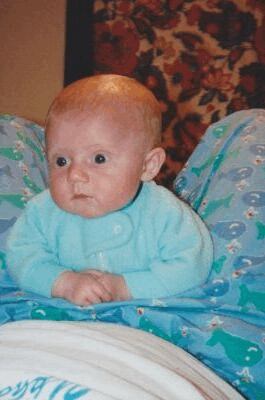


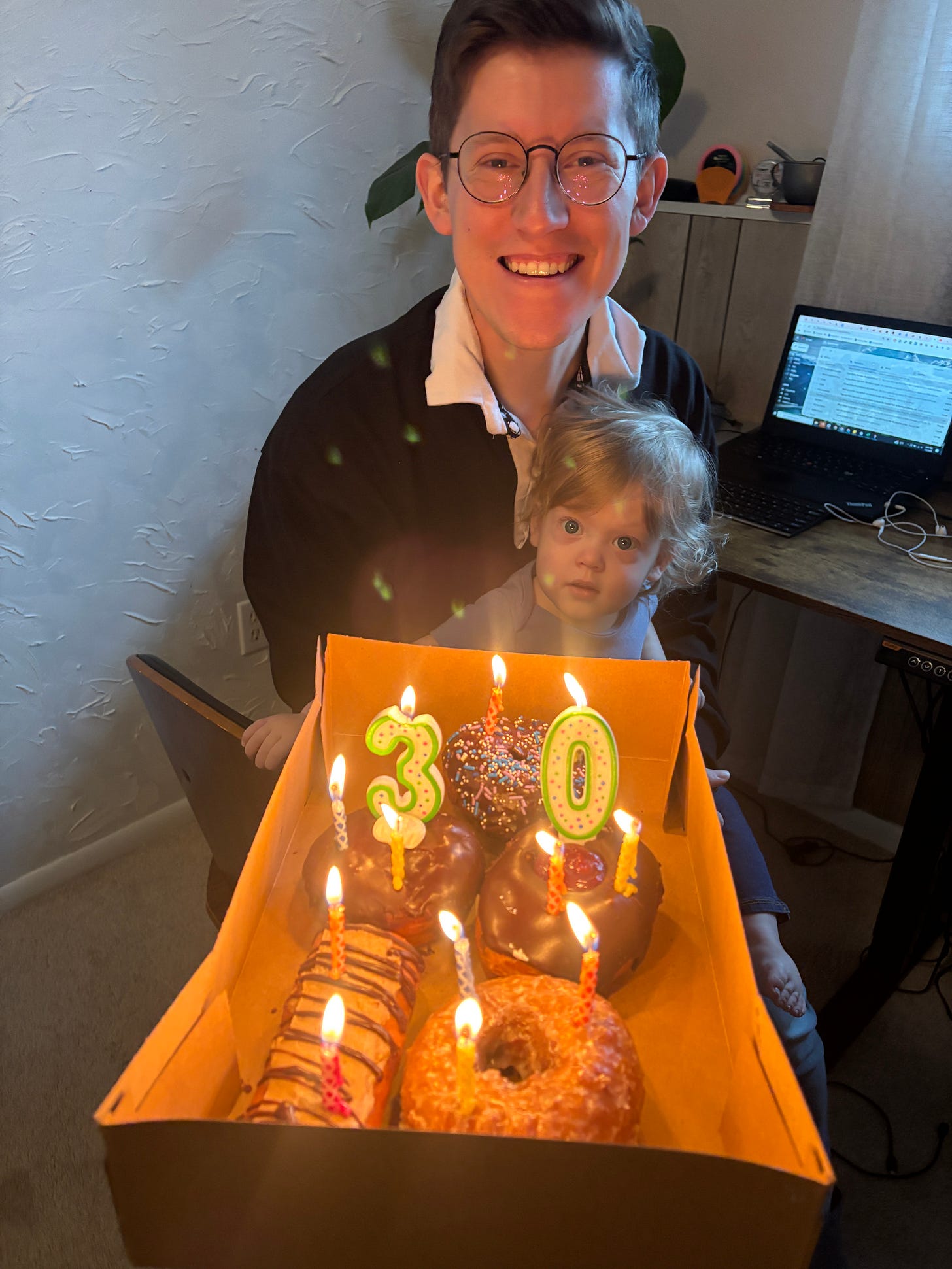
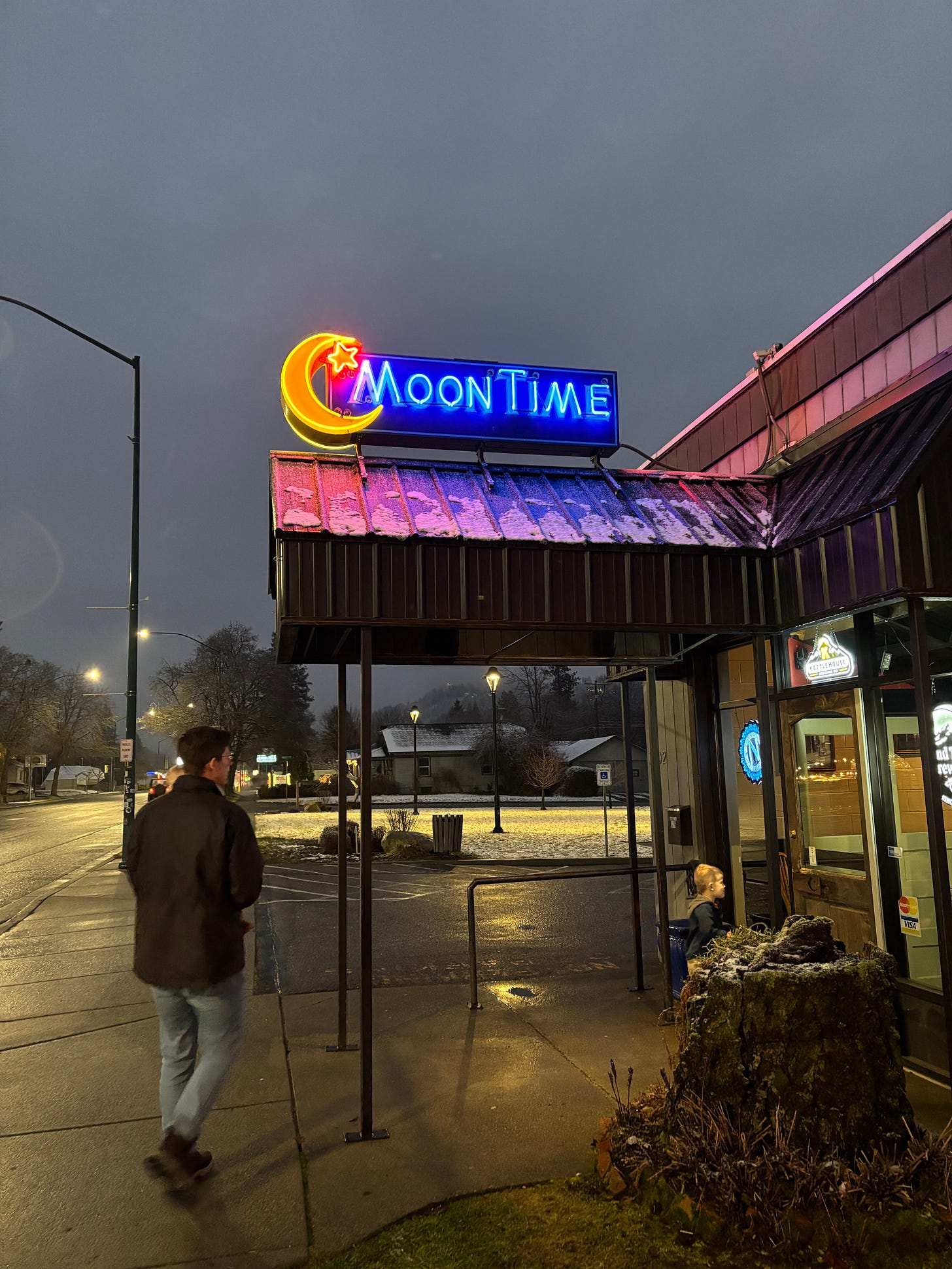
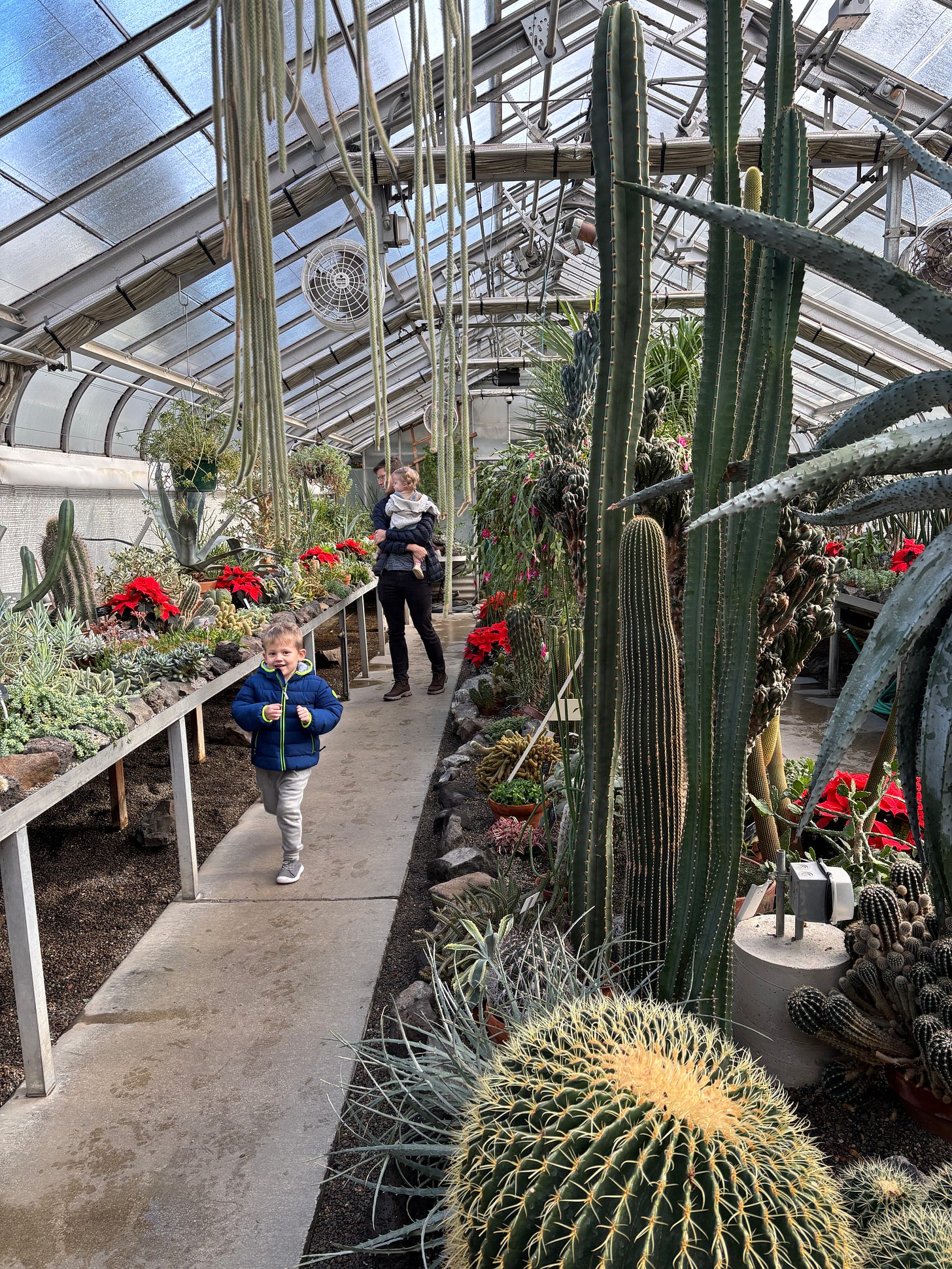
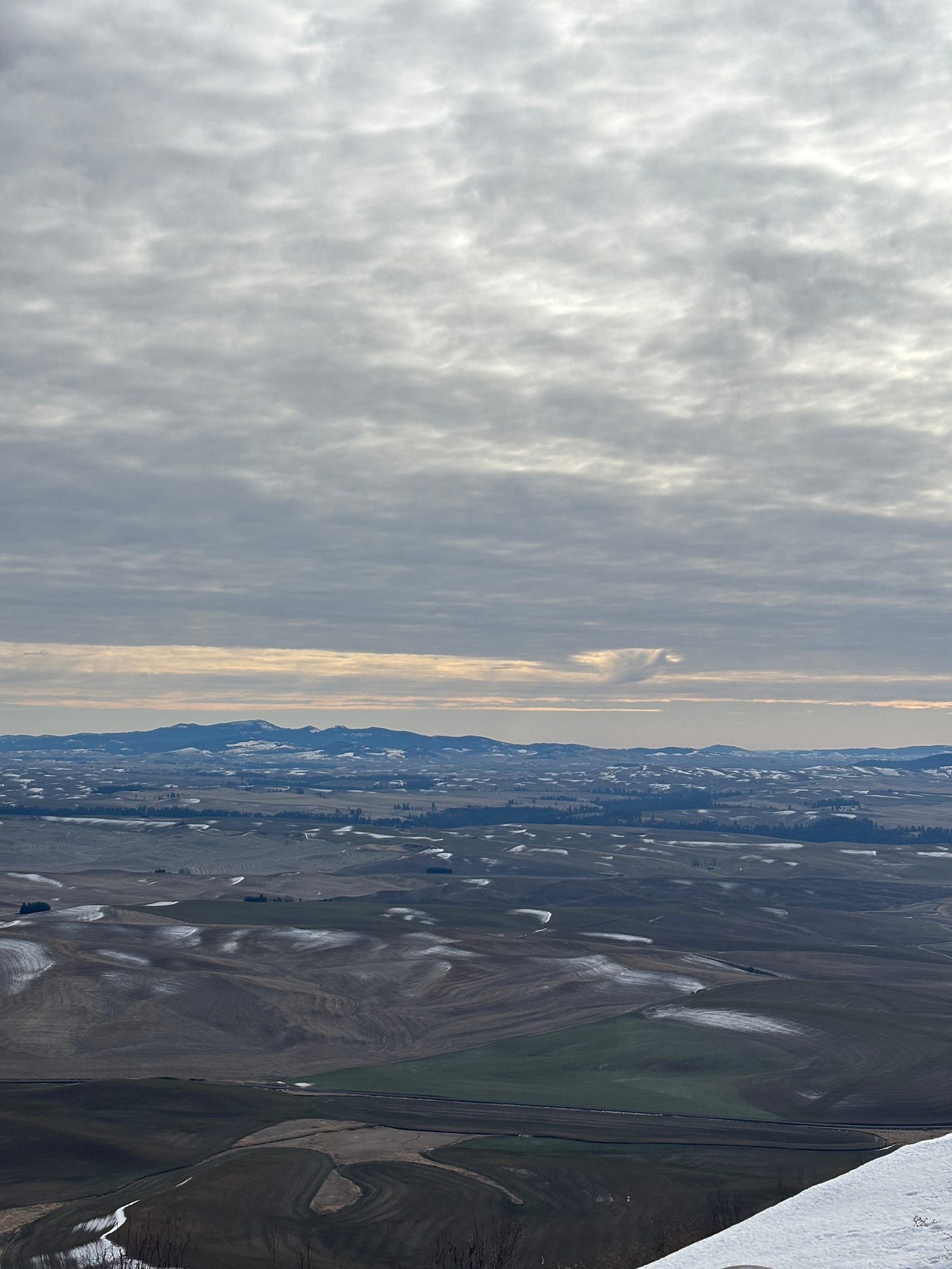
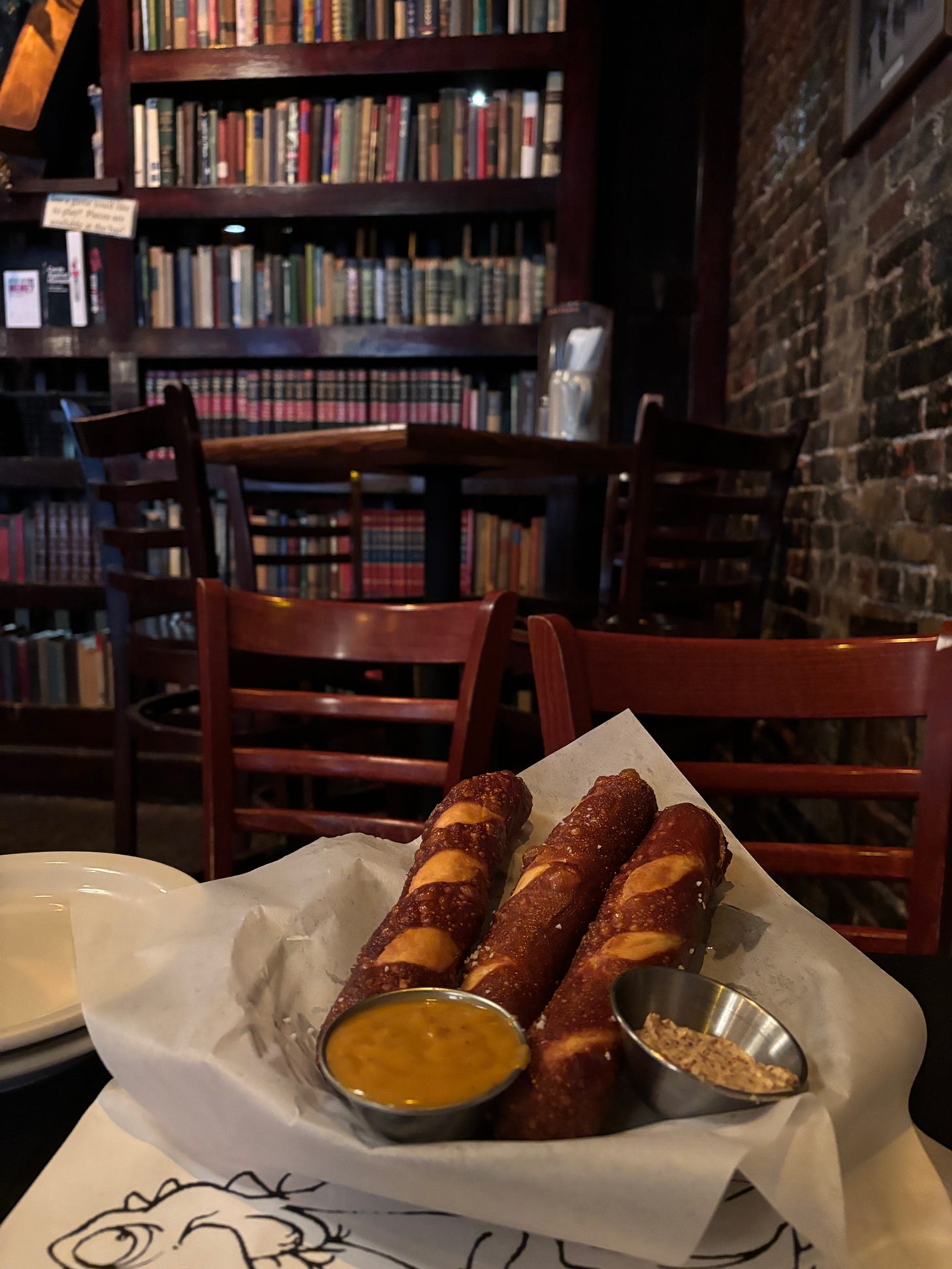
I absolutely loved ‘On Turning 30’.
We must all feel that way. I am 60 years old and the path I had dreamed to travel in my life is a very different one than the course I actually navigated over the many, many decades.
I never foresaw unemployment, miracles, cancer, loss of a career I had spent years studying for abroad at BYU, the unforeseen path my Heavenly Father had neatly mapped out for me to follow once I had arrived and how much more amazing and unbelievable His aspirations for me were, than my own.
He navigates my course through life.
As I approach the end of my time here on earth, I marvel at the unimaginable journey I have traveled, as I contemplate “the best is yet to come!”
Theo Ensing.